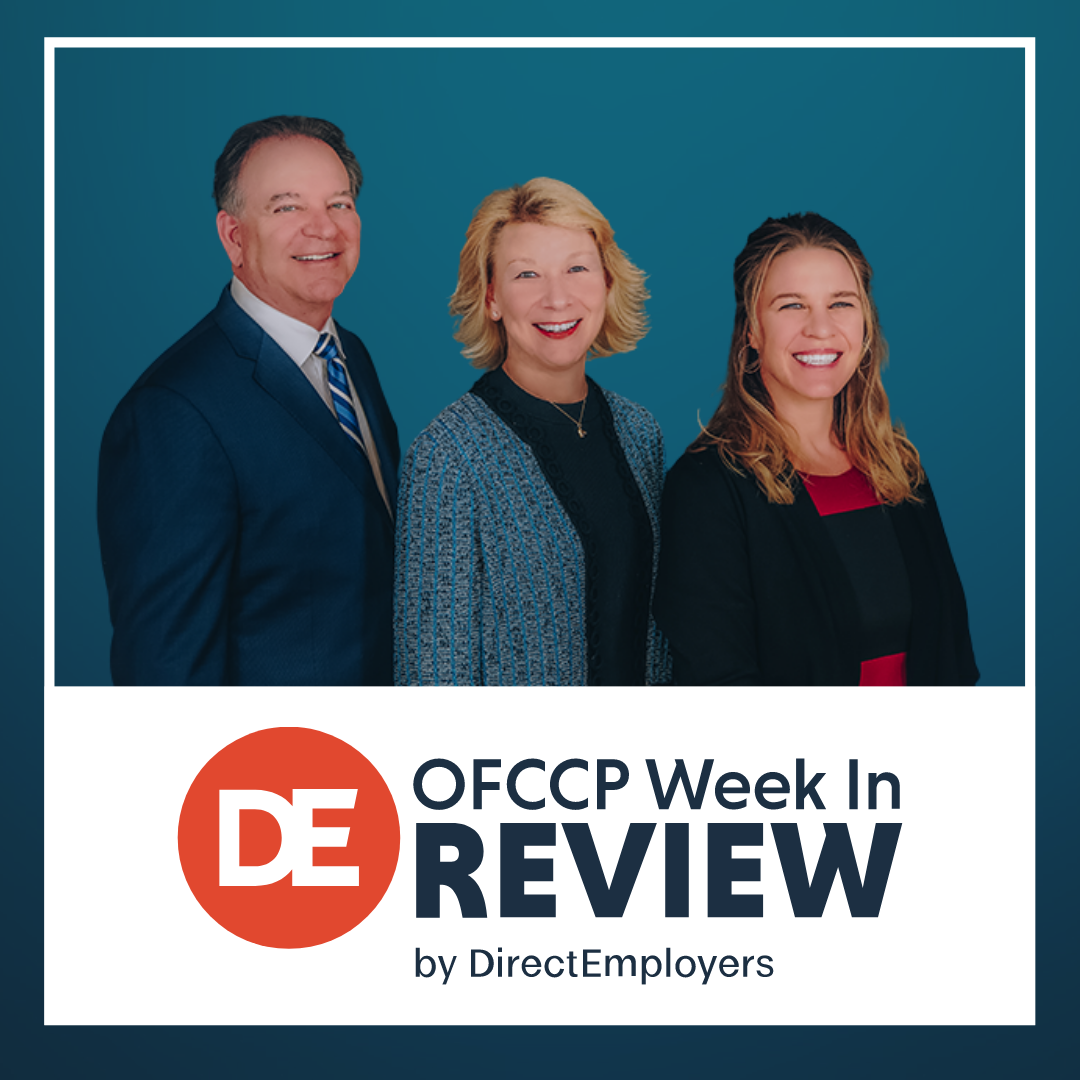 The DE OFCCP Week in Review (WIR) is a simple, fast and direct summary of relevant happenings in the OFCCP regulatory environment, authored by experts John C. Fox, Candee Chambers and Jennifer Polcer. In today’s edition, they discuss:
The DE OFCCP Week in Review (WIR) is a simple, fast and direct summary of relevant happenings in the OFCCP regulatory environment, authored by experts John C. Fox, Candee Chambers and Jennifer Polcer. In today’s edition, they discuss:
- This Week’s Vaccination Injunction Puzzle at a Glance
- U.S. Court of Appeals for the 11th Circuit Issued Two-Page Order Denying Biden Administration’s Request to Lift Nationwide Injunction Against Federal Contractor/Subcontractor Vaccine Mandate
- USDOL Offers a Free Virtual Seminar to Help Covered Federal Contractors/Subcontractors Comply with the New $15 Minimum Wage Rule
- Veterans’ Employment and Training Service to Hold Next Open Virtual Meeting of ACVETEO to Review Veterans hiring in 2021, Outreach for 2022 and Answer Employer Questions re Best Practices to Hire Veterans
- Now is Your Chance! NLRB Seeks Employer Input as to Its Independent-Contractor Definition
- CMS Issued Guidance on the Implementation of its Interim Final Rule for Healthcare Staff Vaccination Requirements Still in Force in the 25 States Not Subject to Injunction
- 2021 EEO-1 Component 1 Data Reporting Portal to Open April 12, 2022, with a May 17, 2022, Last-Day-To-File Date. ALSO: 2019/2020 EEO-1 Filing Portal Closed
- OSHA Seeks Comment Regarding Extending the Recordkeeping Requirements its Healthcare ETS Imposes as Issued June 21, 2021, and Withdrew the Substantive Portions of its Healthcare ETS
- NLRB Follows Previous Court Ruling in Rejecting Argument that Appointment of NLRB General Counsel was Improper and Should Invalidate Any General Counsel Action Against Employers
- U.S. District Courts Enjoin Vaccine and Masking Mandate HHS Sought to Impose on Teachers and Students Participating in Federal “Head Start” Programs with Possible Legal Implications for Other Private Sector Vaccination Mandates
- URGENT! Today is the Last Day to Submit Comments to OSHA re the Recordkeeping Requirements of its Proposed OSHA ETS
Special Edition Week In Review: Read all about it!
While most of you were enjoying the holidays over the last two weeks, the government and the courts did not stop. The news regarding the latest COVID vaccine mandates makes one compare the ongoing events to watching Abbott & Costello’s “Who’s on First?” Read below and get up to speed on everything you may have missed on the vaccine mandates and other news updates from the regulatory agencies over the holiday period. Enjoy! Happy New Year from your WIR team!
This Week’s Vaccination Injunction Puzzle at a Glance:
OSHA Emergency Temporary Standard (“ETS”): Supreme Court to Hear Oral Argument on January 7, 2022 (That is this Friday!)
- Only hours after the U.S. Court of Appeals for the 6th Circuit (Cincinnati) reinstated the OSHA ETS and lifted the injunction the U.S. Court of Appeals for the 5th Circuit (New Orleans) had previously issued against its enforcement, multiple parties filed emergency applications to the SCOTUS for a stay of the 6th Circuit’s ruling while appeals proceeded. You may find briefs in support of the requests to reinstate the stay, pending appeal, here, here, here, here, and here.
- The Biden Administration submitted its briefs in opposition to the emergency applications on December 30th, with oral arguments set for Friday, January 7, 2022
- Employer Comments remain due to OSHA. Comments related to the information collection requirements imposed on private employers are due January 4, 2022…that is TODAY! Comments related to any aspect of the vaccination, testing, and face covering requirement are due on January 19, 2022 (i.e., all other aspects of the private employer ETS)
- On December 27th, OSHA also announced it would seek authorization to continue for three years the recordkeeping requirements of the Healthcare ETS it adopted on June 21, 2021 (see below). OSHA published notice of its request in the Federal Register on December 30, 2021, and anyone wishing to comment has until January 31, 2022 to submit their comment and recommendation
Federal Contractor/Subcontractor Vaccine Mandate Enjoined: 11th Circuit Decision Upheld a Lower Court Injunction; OMB Vaccination Mandate Shut Down Order Thus Remains in Place
- The 11th Circuit Court of Appeals (Atlanta) on December 17th denied the Biden Administration’s appeal seeking to stay the enforcement of a nationwide injunction pausing implementation of the federal contractor/subcontractor vaccine mandate (see below)
- Given the 11th Circuit’s ruling, the Office of Management and Budget has maintained its December 9, 2021 stay of the federal contractor/subcontractor vaccination mandate pending the federal government’s further appeals
Medicare/Medicaid Service Provider CMS Vaccine Mandate: Biden Administration Files Emergency Application with Supreme Court to Vacate Injunctions Against Mandate Now in Effect in 25 States
Following the Biden Administration’s emergency application to the SCOTUS seeking a stay of the injunctions Louisiana and Missouri courts had imposed, the SCOTUS has set oral argument for January 7, 2022 (along with argument as to the OSHA ETS, as noted above)
- CMS had previously indicated it would suspend activities related to implementation and enforcement of the CMS vaccine mandate pending developments in the various litigations. However, on December 28th, the CMS updated its website and issued a memorandum providing guidance as to CMS’ implementation of the vaccine mandate in the other 25 states not subject to the Louisiana and Missouri courts’ injunctions (see below)
Federal Employee Vaccine Mandate Case: This is the Only Mandate the Biden Administration Has Thus Far Successfully Defended Before the Courts
- We previously reported on two U.S. District Court for the District of Columbia case decisions which denied preliminary injunctions (here and here )…thus allowing the vaccination mandates to continue against different classes of federal government employees.
- Both cases found injunctive relief was not warranted as adverse employment action was neither imminent nor certain since requests for exemption remained pending, and because the public interest in health and safety outweighed the potential harm to the plaintiffs.
- The Biden Administration had also previously successfully defeated Motions for Preliminary Injunctions against Executive Order 14043 in November 2021 before the S. District Court for the District of Maryland, the U.S. District Court for the District of New Jersey, and the U.S. District Court for the Southern District of Texas
Head Start Program Vaccination and Masking Rule: Two District Courts Grant Injunctions Preventing Implementation of Vaccine and Masking Rule for Head Start Staff and Students in 25 States
- Last week, the U.S. District Courts for the Northern District of Texas and the Western District of Louisiana enjoined implementation of a vaccination and masking rule pertaining to staff and students in the federal “Head Start” early education program (see below)
- The Administration for Children and Families (“ACF”), a division of the Department of Health and Human Services (“HHS”), issued on November 30, 2021, an Interim Final (emergency) Rule imposing mask and COVID-19 vaccination mandates for teachers and students in Head Start programs. “Head Start” is the federal program to promote school readiness of infants, toddlers, and preschool-aged children from low-income families
Friday, December 17, 2021: U.S. Court of Appeals for the 11th Circuit Issued Two-Page Order Denying Biden Administration’s Request to Lift Nationwide Injunction Against Federal Contractor/Subcontractor Vaccine Mandate
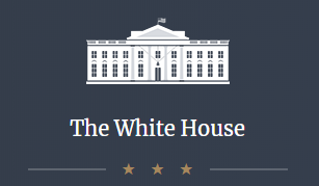
In reviewing the District Court’s Order, the 11th Circuit held that the Biden Administration’s Motion to Stay the injunction failed. The government was unable to establish that it would be irreparably injured absent a stay of the injunction. Without establishing this critical fact, the government failed to satisfy one of the most critical factors required for a Court to grant a stay pending appeal.
While permitting the nationwide injunction to remain in place, the Eleventh Circuit nonetheless threw the Biden Administration “a bone” and expedited the hearing on the substantive claims of the Administration’s appeal. The Eleventh Circuit ordered the Administration to file its initial brief no later than January 3rd, with responses due by January 17th and any reply brief from the government due by January 24th. (Even when the courts move quickly, they seem slow compared to Internet speeds).
Monday, December 20, 2021: USDOL Offers a Free Virtual Seminar to Help Covered Federal Contractors/Subcontractors Comply with the New $15 Minimum Wage Rule
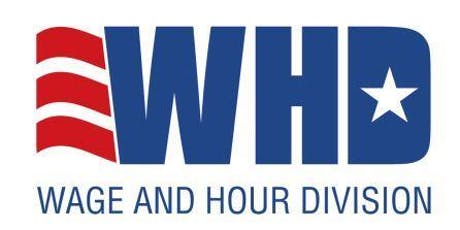
From: 1:30 PM to 3:30 PM (EDT), both days
Details: https://www.dol.gov/newsroom/releases/whd/whd20211217
Our prior stories on the new $15 minimum wage Final Rule for federal contractor employees, including those otherwise subject to the Service Contract Act, the Fair Labor Standards Act and the Davis-Bacon Act (construction), newest story to oldest, are here, here, here, and here.
Remember: the new Final Rule does NOT apply to:
- all contracts/subcontracts
- all contracts/subcontracts at the same time, but is rather legally effective as described in the Final Rule
- all of your employees
- any of your Independent contractors
Register here for the USDOL free webinar to learn how to weave your way through this new minefield of regulation.
Thursday, December 23, 2021: Veterans’ Employment and Training Service to Hold Next Open Virtual Meeting of ACVETEO to Review Veterans hiring in 2021, Outreach for 2022 and Answer Employer Questions re Best Practices to Hire Veterans

Meeting Topic
The Committee will discuss the U.S. Department of Labor’s core veteran employment programs and services. As always, the goal is to raise employer awareness of the advantages of hiring veterans. This includes a review of the 2021 Annual Report, and a briefing from various training and workshop services the VETS provides.
Meeting Details
Date: Thursday, January 27, 2022
Time: 10:00 AM – 12:00 PM (EDT)
There will be an opportunity for individuals or organizations to address the Committee. Any individual or organization that wishes to do so, or any individual needing an accommodation for a disability to attend, should contact Mr. Gregory Green at ACVETEO@dol.gov by Friday, January 14, 2022.
VETS will host the meeting via TEAMS and teleconference. VETS will also post meeting information under this Meeting Updates tab.
See the VETS announcement for a detailed agenda.
Monday, December 27, 2021: Now is Your Chance! NLRB Seeks Employer Input as to Its Independent-Contractor Definition
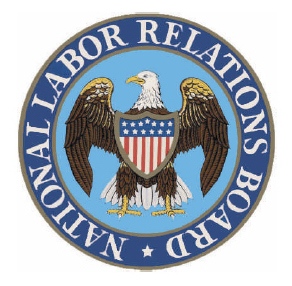
Specifically, the Board has invited the filing of amicus curiae (friend of the court) briefs to address what standard the Board should use to determine what constitutes an “independent contractor” relationship. The Board seeks comment whether it should apply the common-law test it applied in SuperShuttle DFW, Inc., 367 NLRB No. 75 (2019) (independent contractor relationship determined by the extent of control by the employer; the method of payment to the worker; who supplies the instrumentalities, tools, and place of work; the amount of supervision by the company; the type of relationship the parties believed they created; whether the worker is engaged in a distinct business; the duration of the relationship; and whether the work requires a particularized skill or specialized training).
If your comment does not endorse the Board’s use of the common law test, as it defined that standard in the SuperShuttle case, the Board has invited comment as to what standard it should use. In such a case, the Board would specifically like to receive comment on whether it should return to the Obama Administration standard set out in FedEx Home Delivery, 361 NLRB No. 610 (2014) “when considering the various factors to determine whether a worker is an independent contractor, Board should also consider whether an actual entrepreneurial opportunity for gain or loss exists for the worker.”
Those wishing to provide argument in hopes of influencing the standard the Board will use to determine whether a worker is an independent contractor or employee may file a brief with the NLRB on or before February 10, 2022. Briefs should not exceed 20 pages in length and should be electronically filed at nlrb.gov.
Tuesday, December 28, 2021: CMS Issued Guidance on the Implementation of its Interim Final Rule for Healthcare Staff Vaccination Requirements Still in Force in the 25 States Not Subject to Injunction
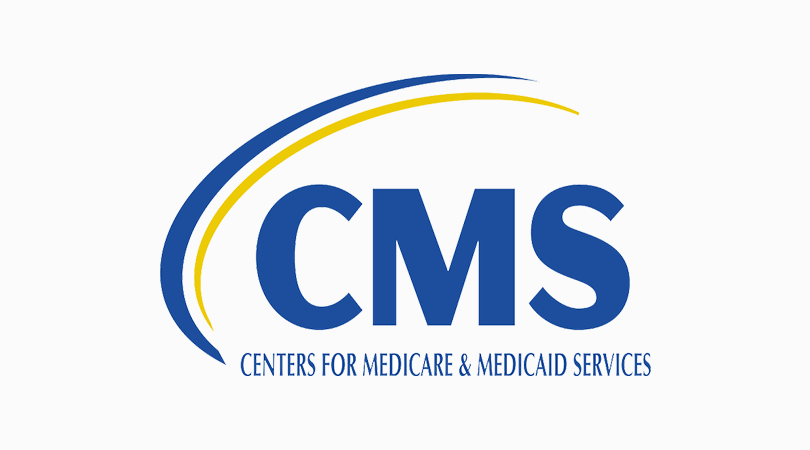
In the memo, CMS noted it expected Medicare and Medicaid-certified facilities to comply with all regulatory requirements of the vaccination mandate or be subject to CMS enforcement remedies. Compliance requires a 100% facility staff vaccination rate; CMS reported, however, that it will provide covered facilities the opportunity to return to compliance should rates fall below the 100% vaccination rate.
The timeline CMS has now set for Medicare and Medicaid facilities not subject to injunction is as follows:
- Within 30 days from December 28, 2021, for a facility to be fully compliant it must demonstrate that:
- It has developed and implemented policies and procedures to ensure 100% vaccination of covered employees against COVID-19; and
- 100% of the staff must receive at least one dose of a COVID-19 vaccine, or have a pending request for, or have been granted a qualifying exemption.
Should the facility have less than 100% compliance, the CMS will issue a notice of non-compliance. A facility that is above 80% vaccination but has a plan to achieve 100% vaccination within 60 days would not be subject to an enforcement action. Otherwise, the facility could be subject to a variety of enforcement actions, such as plans of correction, civil monetary penalties, denial of Medicare or Medicaid payments, and/or termination of contracts.
- Within 60 days from December 28, 2021, for a facility to be fully compliant it must demonstrate that:
- It has developed and implemented policies and procedures to ensure 100% vaccination against COVID-19; and
- 100% of the staff must receive at least one dose of a COVID-19 vaccine or must have obtained a qualifying exemption.
Should the facility have less than 100% compliance, the CMS will issue a notice of non-compliance. A facility that is above a 90% vaccination rate and has a plan to achieve 100% vaccination within 30 days would not be subject to an enforcement action. Otherwise, the facility could be subject to enforcement actions, such as plans of correction, civil monetary penalties, denial of Medicare or Medicaid payment, or termination of contracts.
- Within 90 days and thereafter from December 28, 2021, facilities failing to maintain compliance with the 100% standard may be subject to an enforcement action.
The 25 States Still Subject to the CMS Vaccination Mandate: Thus, healthcare facilities receiving Medicare and/or Medicaid payments in California, Colorado, Connecticut, Delaware, Florida, Hawaii, Illinois, Maine, Maryland, Massachusetts, Michigan, Minnesota, Nevada, New Jersey, New Mexico, New York, North Carolina, Oregon, Pennsylvania, Rhode Island, Tennessee, Vermont, Virginia, Washington, and Wisconsin are well warned to begin drawing up plans to comply with the CMS vaccine mandate. Should the SCOTUS issue a ruling upholding the CMS vaccine mandate, the time between the Court’s expected ruling (after January 7, 2022) and CMS’ January 28, 2022, initial deadline is likely too short a runway of time for employers to “wait and see” before undertaking the planning necessary to comply by (likely) the middle to the end of January, if need be. Accordingly, Medicare and Medicaid-recipient healthcare providers will operate at their peril if they wait too long to plan, and then later fail to be able to comply in the event the SCOTUS upholds the CMS vaccination mandate.
Tuesday, December 28, 2021: 2021 EEO-1 Component 1 Data Reporting Portal to Open April 12, 2022, with a May 17, 2022, Last-Day-To-File Date. ALSO: 2019/2020 EEO-1 Filing Portal Closed

ALSO: The EEOC announced it had formally closed collection of 2019 and 2020 EEO-1 Component 1 data reports and had also simultaneously shut down its 2019/2020 Filer Support help desk. The EEOC is no longer accepting any additional 2019 and 2020 reports. As readers may recall, the EEOC previously extended the deadline for companies to submit both the 2019 and 2020 EEO-1 Component 1 data filings in response to the COVID-19 public health emergency. The EEOC (and OFCCP) required private employers with 100 or more employees, and federal contractors with 50 or more employees meeting certain criteria, to produce the relevant demographic workforce data for 2019 and 2020 by December 28, 2021.
Thursday, December 30, 2021: OSHA Seeks Comment Regarding Extending the Recordkeeping Requirements its Healthcare ETS Imposes as Issued June 21, 2021, and Withdrew the Substantive Portions of its Healthcare ETS
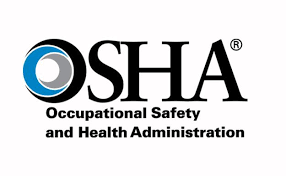
- Establish and maintain COVID-19 logs recording each instance in which an employee is COVID-19 positive, and to make such records available upon request to employees and OSHA; and
- Report work-related COVID-19 fatalities and hospitalizations of employees to OSHA within eight hours of the employer learning of a fatality and within 24 hours of the employer learning of any COVID-19 in-patient hospitalization.
OSHA seeks to have employers continue to collect such information for a period of three (3) years, which is the maximum length of time OSHA may seek authorization without renewal. All other aspects of the prior Healthcare ETS expired in December 2021 pursuant to the Occupational Safety and Health Act, which provides an ETS may only remain in effect for a period of six months before OSHA must promulgate a final rule.
Finding it would not be able to complete a final rule within the six-month time frame, OSHA withdrew the non-recordkeeping portions of the Healthcare ETS last Monday (December 27, 2021). The provisions OSHA withdrew included requiring healthcare employers to develop and implement a COVID-19 plan to identify and control hazards in the workplace; implement requirements to reduce transmission of COVID-19 in the workplace; provide reasonable time and paid leave for vaccinations and potential side effects; and exempted ETS coverage to healthcare workplaces where all employees were fully vaccinated and individuals with possible COVID-19 were prohibited from entry.
Ominously, however, OSHA also did an “about face” from its prior position in its Healthcare ETS that this vaccination mandate could not be forced through OSHA’s General Duty Clause. Instead, OSHA now (astoundingly) takes the opposite legal position:
“OSHA believes the terms of the Healthcare ETS remain relevant in general duty cases in that they show that COVID-19 poses a hazard in the healthcare industry and that there are feasible means of abating the hazard. OSHA plans to publish a notice in the Federal Register to implement this announcement.”
OSHA has not yet published such a Federal Register notice as of this writing.
Healthcare employers wishing to comment on the continuation of the recordkeeping obligations should address the following issues:
- Whether the collection of information is necessary for the proper performance of the functions of the Department of Labor, including whether the information will have practical utility;
- if the information will be processed and used in a timely manner;
- the accuracy of the agency’s estimates of the burden and cost of the collection of information, including the validity of the methodology and assumptions used;
- ways to enhance the quality, utility, and clarity of the information collection; and
- ways to minimize the burden of the collection of information on those required to respond, including the use of automated collection techniques or other forms of information technology.
NLRB Follows Previous Court Ruling in Rejecting Argument that Appointment of NLRB General Counsel was Improper and Should Invalidate Any General Counsel Action Against Employers

As readers may remember, President Biden summarily terminated the employment of Trump NLRB General Counsel Peter Robb. In refusing to resign, Mr. Robb had cited his Senate confirmation for a fixed term which had not yet expired at the time the President fired him. Because it was unclear whether President Biden had the legal authority to terminate Mr. Robb mid-term, employers had attempted to raise defenses to enforcement actions Ms. Abruzzo, and Acting NLRB General Counsel Peter Ohr before her, had commenced. Employers reasoned that NLRB prosecutions Mr. Ohr and Ms. Abruzzo had commenced were not legally authorized.
In its decision, the NLRB relied in part on the U.S. Supreme Court’s recent decision in Collins v. Yellen, Case No. 19-422 (June 23, 2021). In Collins, the Court explained that where a statute does not limit a President’s power to remove an agency head, the presumption is that the officer serves “at the President’s pleasure.” Applying the reasoning in Collins, the NLRB held Congress did not intend to limit the President’s power to remove the NLRB General Counsel mid-term since no provision of the National Labor Relations Act explicitly addresses the authority of the President to remove the General Counsel.
Furthermore, the Board held that since the U.S. Senate had now approved Ms. Abruzzo’s subsequent appointment, employers had no legal theory why such a validly appointed General Counsel could not exercise the statutory powers of her office. Finally, the Board noted that former General Counsel Mr. Robb’s term would have expired on November 17, 2021, regardless, and concluded that Ms. Abruzzo would have appropriately assumed the position at that time.
Now that there is both a U.S. District Court decision and an NLRB decision directly on point, employers still smarting from NLRB enforcement actions Mr. Ohr and Ms. Abruzzo commenced against them may now abandon the “illegal Robb termination defense” to seek to stop NLRB enforcement actions. Going forward, it is more likely that employers will instead focus their defense on the substantive merits of the action unrelated to the employment termination of Mr. Robb from his prior post as NLRB General Counsel.
Pretty Savvy Lawyering: In retrospect, this was some savvy lawyering by the Biden White House. It looks like they got this one (counterintuitively) right. But, as always, it is about a careful and detailed reading of the applicable law, and not about mere common sense. And you need to have read the law correctly if you are going to play political hard ball as President Biden did with Mr. Robb and similarly with the former General Counsel of the EEOC (Sharon Fast Gustafson), who President Biden also fired mid-term in an equally high-profile and controversial and adversarial action. We knew that bipartisanship in this White House was over when those gloves came off early in this Administration. Watch the employment terminations of senior officials in many federal government bi-partisan Boards and Commissions the Senate has confirmed for fixed terms now become the norm on Day 1 as future Presidents take the reins from the opposing political party.
Saturday, January 1, 2022: U.S. District Courts Enjoin Vaccine and Masking Mandate HHS Sought to Impose on Teachers and Students Participating in Federal “Head Start” Programs with Possible Legal Implications for Other Private Sector Vaccination Mandates

The ACH Rule attempted to add vaccine and masking mandates to existing “Head Start Program Performance Standards” the Secretary of the Health and Human Services Department (“HHS”) imposed, a federal Cabinet-level agency. Facilities are required to comply with “Head Start Program Performance Standards” to continue to receive federal funding for their Head Start programs. The Rule, which took effect on November 30, 2021, required:
- “Universal masking” in all indoor settings for all individuals aged 2 years and older except for when individuals are eating or drinking, are napping, are unable to wear a mask due to a disability under the Americans with Disabilities Act or is a child with special health care needs.
- Masking for those not fully vaccinated when the individual is indoors, or when the individual is outdoors in crowded settings or during activities that involve sustained close contact with other people.
- Full vaccination by January 31, 2022 for all Head Start staff, volunteers, and certain contractors who work in classrooms or directly with children, unless the individual is exempt because a vaccine is medically contraindicated, requires a delay in vaccination due to medical necessity, or is legally entitled to an accommodation based on religious beliefs or medical disability.
In Texas, et al. v. Becerra, the court found that plaintiffs had demonstrated a substantial likelihood of success on the merits of their claim against the mandate, and that imposition of the mandate would cause a substantial threat of harm to plaintiffs. The court decided that the Rule exceeded the statutory authority Congress had granted to HHS. Furthermore, the court held that the plain language of the statutory provisions HHS relied upon do not authorize issuance of mask and vaccine mandates. This is because such mandates do not relate to the performance of the Head Start program, such as the program’s “administrative or financial management standards,” or the “condition and location of the program’s facilities.”
Additionally, even if the mandates modified performance standards of the Head Start program, the court held that the federal agency did not follow the appropriate administrative procedures required to modify its standards. The court found HHS failed to consult with many of the experts identified in the statute as necessary stakeholders, there was not good cause to issue the Rule without public notice and comment given the delayed deadline for compliance with the Rule, and that the Rule was arbitrary and capricious by adopting a one-size-fits-all approach with no end date.
Based on the foregoing, the Court issued an injunction ceasing implementation and enforcement of the Rule in the state of Texas.
In Louisiana, et al. v. Becerra, 24 states sought to enjoin the same vaccine and mask mandate. Citing to President Ronald Reagan’s famous quip at a 1986 news conference that “the nine most terrifying words in the English language are, ‘I’m from the government and I’m here to help’,” the court first found that all 24 states had both individual and quasi-sovereign interests to protect, including protecting its citizens from requiring to submit to vaccinations and/or mask mandates. As proper plaintiffs, the court then held that plaintiffs had established a likelihood of success on the merits based on similar grounds as the court found in Texas, et al. v. Becerra, et al. Specifically, the court held the federal agency lacked authority to issue the mandate, and that the Rule violated the Administrative Procedures Act’s notice-and-comment requirements. Additionally, the court in Louisiana, et al. held separately that the Rule violated the 10th Amendment of the U.S. Constitution, in that states maintain the authority to enact public health requirements pursuant to their state powers. As such, the court enjoined implementation and enforcement of the Rule in the 24 states that appeared as plaintiffs in the action.
The 24 states subject to the Court’s injunction are: Louisiana, Alabama, Alaska, Arizona, Arkansas, Florida, Georgia, Indiana, Iowa, Kansas, Kentucky, Mississippi, Missouri, Montana, Nebraska, North Dakota, Ohio, Oklahoma, South Carolina, South Dakota, Tennessee, Utah, West Virginia, and Wyoming.
These injunctions remain in effect during the pendency of the litigation until the matters are heard on the merits by the respective courts. It is anticipated, as with other instances where the Biden Administration’s mandates have been met with defeat, that the Administration will seek an immediate appeal to lift the respective injunctions.
Unfortunately for the Administration, both the District Courts who issued opinions last week sit in the Fifth Circuit Court of Appeals, the same court that enjoined the OSHA ETS imposing vaccination requirements on private employers. As such, the Administration will have a longer procedural “road to hoe” to reach a court more amenable to the Administration’s position.
Tuesday, January 4, 2022: URGENT! Today is the Last Day to Submit Comments to OSHA re the Recordkeeping Requirements of its Proposed OSHA ETS

NOTE: January 19, 2022, is the last day for public comment on all other aspects of the OSHA ETS, other than its recordkeeping component.
THIS COLUMN IS MEANT TO ASSIST IN A GENERAL UNDERSTANDING OF THE CURRENT LAW AND PRACTICE RELATING TO OFCCP. IT IS NOT TO BE REGARDED AS LEGAL ADVICE. COMPANIES OR INDIVIDUALS WITH PARTICULAR QUESTIONS SHOULD SEEK ADVICE OF COUNSEL.
SUBSCRIBE.
Compliance Alerts
Compliance Tips
Week In Review (WIR)
Subscribe to receive alerts, news and updates on all things related to OFCCP compliance as it applies to federal contractors.
OFCCP Compliance Text Alerts
Get OFCCP compliance alerts on your cell phone. Text the word compliance to 55678 and confirm your subscription. Provider message and data rates may apply.

